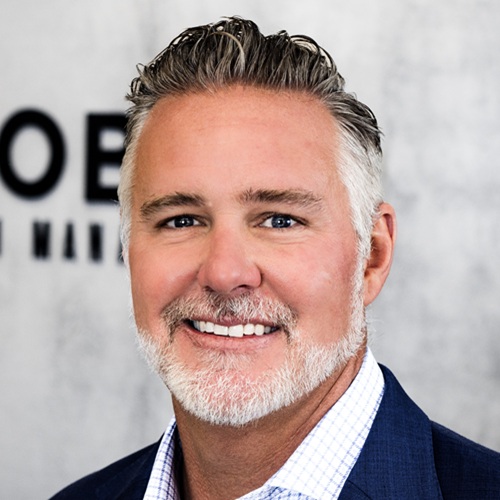An Easier Path to Real Estate Investing: 1031 Delaware Statutory Trusts
Being a landlord isn't for everyone, but getting out of the biz could trigger capital gains taxes. There's another way to stay in real estate, without the tenant hassles and without the bite of capital gains.


Profit and prosper with the best of Kiplinger's advice on investing, taxes, retirement, personal finance and much more. Delivered daily. Enter your email in the box and click Sign Me Up.
You are now subscribed
Your newsletter sign-up was successful
Want to add more newsletters?

Delivered daily
Kiplinger Today
Profit and prosper with the best of Kiplinger's advice on investing, taxes, retirement, personal finance and much more delivered daily. Smart money moves start here.

Sent five days a week
Kiplinger A Step Ahead
Get practical help to make better financial decisions in your everyday life, from spending to savings on top deals.

Delivered daily
Kiplinger Closing Bell
Get today's biggest financial and investing headlines delivered to your inbox every day the U.S. stock market is open.

Sent twice a week
Kiplinger Adviser Intel
Financial pros across the country share best practices and fresh tactics to preserve and grow your wealth.

Delivered weekly
Kiplinger Tax Tips
Trim your federal and state tax bills with practical tax-planning and tax-cutting strategies.

Sent twice a week
Kiplinger Retirement Tips
Your twice-a-week guide to planning and enjoying a financially secure and richly rewarding retirement

Sent bimonthly.
Kiplinger Adviser Angle
Insights for advisers, wealth managers and other financial professionals.

Sent twice a week
Kiplinger Investing Weekly
Your twice-a-week roundup of promising stocks, funds, companies and industries you should consider, ones you should avoid, and why.

Sent weekly for six weeks
Kiplinger Invest for Retirement
Your step-by-step six-part series on how to invest for retirement, from devising a successful strategy to exactly which investments to choose.
I’ve written before about helping clients who feel trapped in real estate investments because of the high capital gains tax they would owe if they sold their properties.
In my column about Deferred Sales Trusts, I outlined how to use Section 453 of the Internal Revenue Code to defer the tax and roll the money into investments other than just real estate.
Another strategy that I’ve been getting a lot of questions about lately uses a 1031 Exchange to put the proceeds of a sale into a Delaware Statutory Trust (DST). It’s a way to stay in real estate — and avoid capital gains taxes — but as a more passive owner.
From just $107.88 $24.99 for Kiplinger Personal Finance
Become a smarter, better informed investor. Subscribe from just $107.88 $24.99, plus get up to 4 Special Issues

Sign up for Kiplinger’s Free Newsletters
Profit and prosper with the best of expert advice on investing, taxes, retirement, personal finance and more - straight to your e-mail.
Profit and prosper with the best of expert advice - straight to your e-mail.
Many real estate investors know at least a little bit about the 1031 Exchange. The concept has been around since the 1920s; it became Section 1031 of the Internal Revenue Code in 1954, and it’s been updated through the years.
Basically, it allows an owner or investor to sell a property and defer the capital gains tax on the sale.
There are some guidelines that you have to follow. You must set up your 1031 prior to closing on the sale, and your sales proceeds go to a third party, called an accommodator or a qualified intermediary, to hold. From closing, you have 45 days to identify the property you’re going to exchange into. And then you have six months to close on the property you identified. If you do all that, you’ve accomplished a successful 1031 Exchange. But until 2004, you were still replacing one property with another — so, like it or not, you were still a working landlord.
More recently, Revenue Ruling 2004-86 determined that a Delaware Statutory Trust qualified as real estate and, as such, could serve as a replacement property solution for 1031 Exchange transactions. If you were tired of managing a property yourself, you could, instead, acquire a fractional or percentage interest in a DST, and become a part owner in a much larger real estate investment — a 300-unit apartment building, a grocery center, medical office building, etc.
So now instead of Mr. and Mrs. Smith as your tenants, calling you to come fix the garbage disposal, Walgreens or CVS is your tenant with a corporate lease. It’s a more hands-off way of owning income-producing real estate that’s especially well-suited to retirees. A dozen or so fairly large companies put together deals for investors to exchange into that are professionally managed and pretty much turnkey.
There is a downside (of course), and that’s liquidity. You still own real estate — it’s not like stock, where you can hit a button and sell. The holding period might be five to 10 years.
You also should be sure you’re dealing with a reputable company, called a sponsor, when you structure the deal. I prefer ones that have been in business over 10 years — which proves that they sustained the market downturn and can demonstrate a proven track record of acquiring, managing and disposing of assets on behalf of investors — and ones that manage a sizable portfolio of real estate throughout the U.S. The good news is there’s a handful of them that have been doing this for many years. If you have a trusted financial adviser, he can help you determine who to work with.
Investment strategies can run hot and cold — and DSTs cooled off for a while, thanks to the most recent recession and real estate bust. But they offer a viable solution to a common investor problem. Talk to your tax attorney and your financial adviser to see if this strategy makes sense for you.
Kim Franke-Folstad contributed to this article.
Securities offered through Madison Avenue Securities, LLC (MAS), member FINRA/SIPC. Advisory services offered through Global Wealth Management Investment Advisory (GWM) and/or Global Financial Private Capital (GFPC). MAS, GWM, and GFPC are not affiliated entities. MAS and Global 1031 Exchange are not affiliated companies. Investing involves risk, including the potential loss of principal.
Neither the firm nor its agents or representatives may give tax or legal advice. Individuals should consult with a qualified professional for guidance before making any purchasing decisions.
The appearances in Kiplinger were obtained through a PR program. The columnist received assistance from a public relations firm in preparing this piece for submission to Kiplinger.com. Kiplinger was not compensated in any way.
Profit and prosper with the best of Kiplinger's advice on investing, taxes, retirement, personal finance and much more. Delivered daily. Enter your email in the box and click Sign Me Up.

Grant Conness is Managing Director and Co-Founder of Global Wealth Management, recognized as the No. 1 financial advisory firm in Southeast Florida by USA TODAY's 2025 Best Financial Advisory Firms list.* With more than 20 years of experience, Grant focuses on helping clients navigate the critical five years before and after retirement through the firm's proprietary Retirement Roadmap Review process. Grant is co-host of Retire Now South Florida on NBC, CBS, ABC and FOX, and he has been quoted in The Wall Street Journal.** He is also co-author of Charting Your Financial Course.
-
 Dow Leads in Mixed Session on Amgen Earnings: Stock Market Today
Dow Leads in Mixed Session on Amgen Earnings: Stock Market TodayThe rest of Wall Street struggled as Advanced Micro Devices earnings caused a chip-stock sell-off.
-
 How to Watch the 2026 Winter Olympics Without Overpaying
How to Watch the 2026 Winter Olympics Without OverpayingHere’s how to stream the 2026 Winter Olympics live, including low-cost viewing options, Peacock access and ways to catch your favorite athletes and events from anywhere.
-
 Here’s How to Stream the Super Bowl for Less
Here’s How to Stream the Super Bowl for LessWe'll show you the least expensive ways to stream football's biggest event.
-
 How to Add a Pet Trust to Your Estate Plan: Don't Leave Your Best Friend to Chance
How to Add a Pet Trust to Your Estate Plan: Don't Leave Your Best Friend to ChanceAdding a pet trust to your estate plan can ensure your pets are properly looked after when you're no longer able to care for them. This is how to go about it.
-
 Want to Avoid Leaving Chaos in Your Wake? Don't Leave Behind an Outdated Estate Plan
Want to Avoid Leaving Chaos in Your Wake? Don't Leave Behind an Outdated Estate PlanAn outdated or incomplete estate plan could cause confusion for those handling your affairs at a difficult time. This guide highlights what to update and when.
-
 I'm a Financial Adviser: This Is Why I Became an Advocate for Fee-Only Financial Advice
I'm a Financial Adviser: This Is Why I Became an Advocate for Fee-Only Financial AdviceCan financial advisers who earn commissions on product sales give clients the best advice? For one professional, changing track was the clear choice.
-
 I Met With 100-Plus Advisers to Develop This Road Map for Adopting AI
I Met With 100-Plus Advisers to Develop This Road Map for Adopting AIFor financial advisers eager to embrace AI but unsure where to start, this road map will help you integrate the right tools and safeguards into your work.
-
 The Referral Revolution: How to Grow Your Business With Trust
The Referral Revolution: How to Grow Your Business With TrustYou can attract ideal clients by focusing on value and leveraging your current relationships to create a referral-based practice.
-
 This Is How You Can Land a Job You'll Love
This Is How You Can Land a Job You'll Love"Work How You Are Wired" leads job seekers on a journey of self-discovery that could help them snag the job of their dreams.
-
 65 or Older? Cut Your Tax Bill Before the Clock Runs Out
65 or Older? Cut Your Tax Bill Before the Clock Runs OutThanks to the OBBBA, you may be able to trim your tax bill by as much as $14,000. But you'll need to act soon, as not all of the provisions are permanent.
-
 The Key to a Successful Transition When Selling Your Business: Start the Process Sooner Than You Think You Need To
The Key to a Successful Transition When Selling Your Business: Start the Process Sooner Than You Think You Need ToWay before selling your business, you can align tax strategy, estate planning, family priorities and investment decisions to create flexibility.